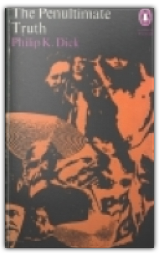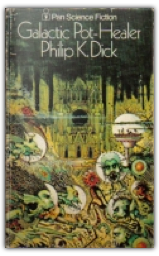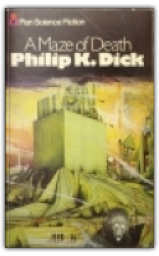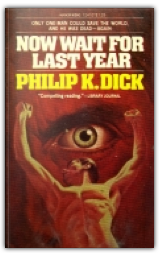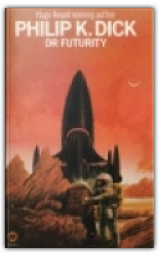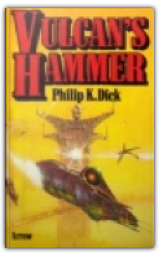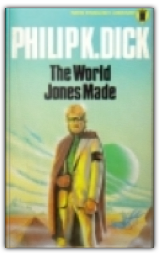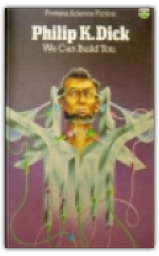 Do Androids Dream of Electric Sheep?
Philip K. Dick
Do Androids Dream of Electric Sheep?
Philip K. Dick
Do Androids Dream of Electric Sheep? is a book that most people think they remember, and almost always get more or less wrong. Ridley Scott's film Blade Runner took a lot from it, and threw a lot away; wonderful in itself, it is a flash thriller where Dick's novel is a sober meditation. As we all know, bounty hunter Rick Deckard is stalking a group of androids returned from space with short life spans and murder on their minds—where Scott's Deckard was Harrison Ford, Dick's is a financially over-stretched municipal employee with bills to pay and a depressed wife. In a world where most animals have died, and pet-keeping is a social duty, he can only afford a robot imitation, unless he gets a big financial break. The genetically warped "chickenhead" John Isidore has visions of a tomb-world where entropy has finally won. And everyone plugs in to the spiritual agony of Mercer, whose sufferings for the sins of humanity are broadcast several times a day. Prefiguring the religious obsessions of Dick's last novels, this asks dark questions about identity and altruism. After all, is it right to kill the killers just because Mercer says so? —Roz Kaveney  Flow My Tears, the Policeman Said
Philip K. Dick
Flow My Tears, the Policeman Said
Philip K. Dick
Philip K Dick notoriously charted SF's most dangerous, booby-trapped realities. Flow My Tears, The Policeman Said (1974) is a relatively straightforward tale of paranoid unease at finding the world isn't what it should be. |
 Made with Delicious Library
Made with Delicious Library
London, State zipflap congrotus delicious library Scott, Mike
